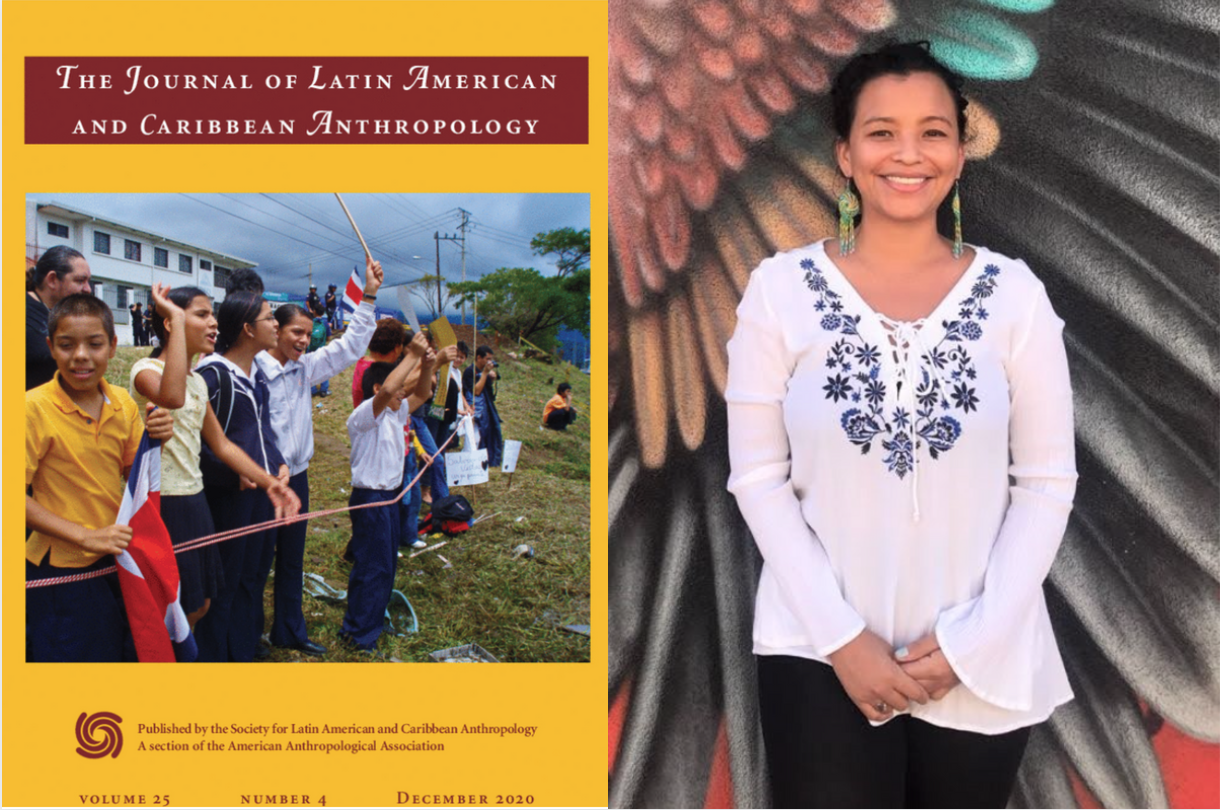MALAS student’s article featured in the Journal of Latin American and Caribbean Anthropology
May 6, 2021 - Felina Maria de la Luz Martinez

Masters in Latin American Studies student Fiore Bran Aragón recently had her article on youth activism during Nicaragua's 2018 insurrection featured in the Journal of Latin American and Caribbean Anthropology as part of an in-focus issue on “Generation and Change” in Central America.
“This is a major journal and a huge accomplishment for an MA student,” Director of the Latin American Studies program Ronda Brulotte said.
The article, Bran Aragón said, originated from the academic work of her co-author Jennifer Goett and is based on social movements in Nicaragua and Bran Aragón’s experience as a human rights defender and university student in the same country.
“We started writing together in 2019 to continue working on some essays that I had written in 2018 during my participation in the student movement in Managua, Nicaragua,” Bran Aragón said. “Our objective was to understand the activism experiences of the postwar/Millennial generation in Nicaragua and how they proposed new ethical foundations for political activism that questioned those of the Sandinista Revolution by focusing on mutual care, popular organization, and social media to share information and organize demonstrations.”
To do this, Bran Aragón said they reflected on their individual experiences and positionality-- Bran Aragón as a local student and activist and Goett as an American academic. They also shared the experiences of other Nicaraguan young activists and refugees that were part of the protests in 2018, Bran Aragón said.
“My inspiration comes from my own experience and the experiences of my colleagues and friends. For this article, I did not have to look for a topic, but the subject came from my context,” Bran Aragón said.
Since the citizen rebellion against the current government began, Bran Aragón said national and foreign academics and journalists have written about Nicaragua´s situation from different perspectives, but there is not much data or stories about the role of young people in the last wave of protests and other relevant social phenomena.
“With this article, Goett and I sought to open space for intergenerational dialogue and position the voices of youth as protagonists of social change in Nicaragua,” Bran Aragón said.
Bran Aragón said it is a big achievement to see her work published alongside academics and activists from all over Central America and the United States and to be able to share her story, as well the stories of many other Nicaraguan youths, at the international level to bring awareness to the human rights situation in the country.
“Three years have passed since the protests, and the Nicaraguan population continues to organize against the current dictatorship. However, on the international scene, there is no more talk about the situation in Nicaragua, the thousands of refugees, and the people killed and persecuted by the government,” Bran Aragón said. “At the international level, we need to talk more about the human rights situation in all Central America, especially to contextualize the current flow of refugees on the southern US border. For me, the most important achievement is that this article can reach out to the international community and academia to denounce the human rights situation in Nicaragua.”
